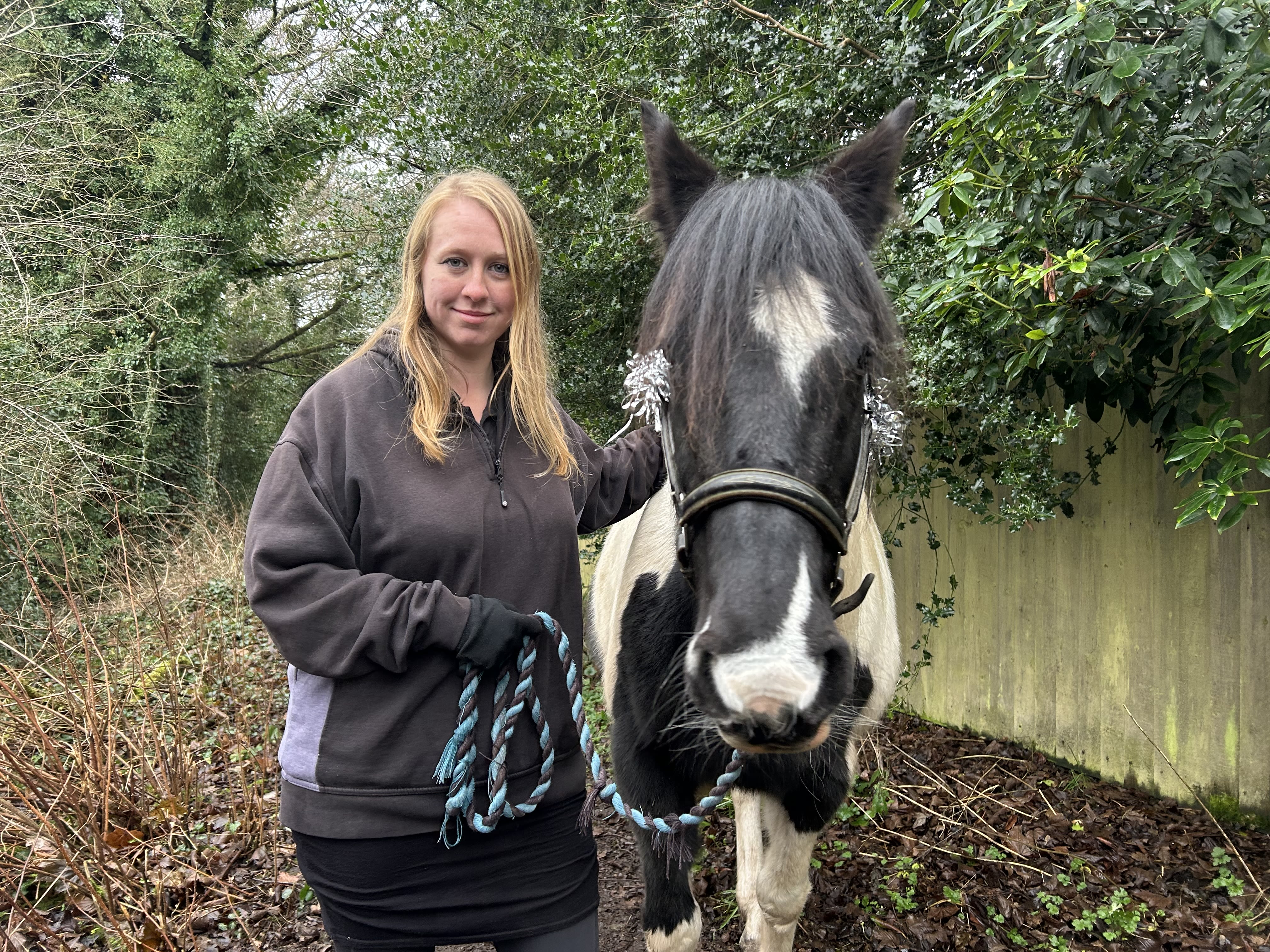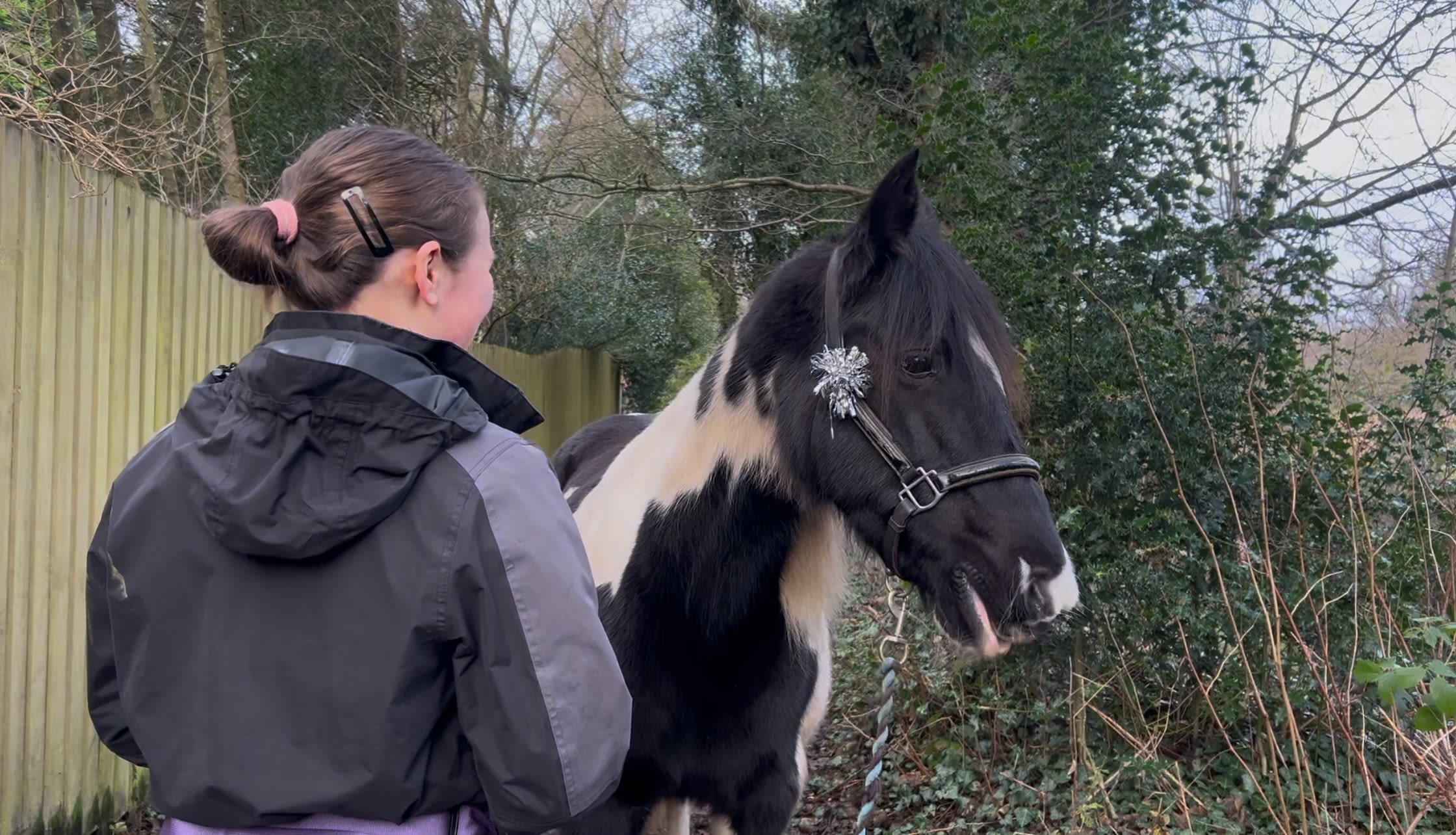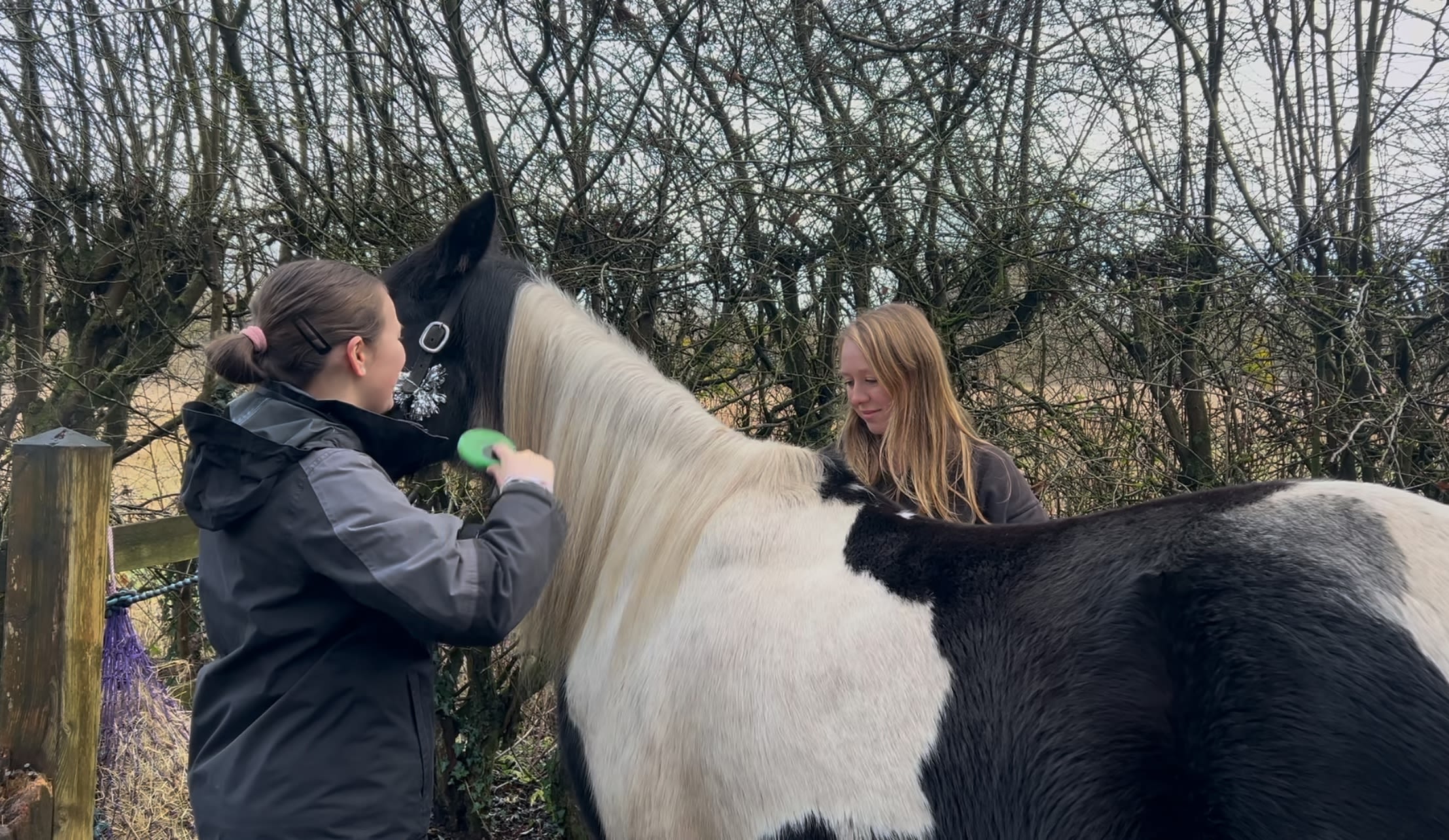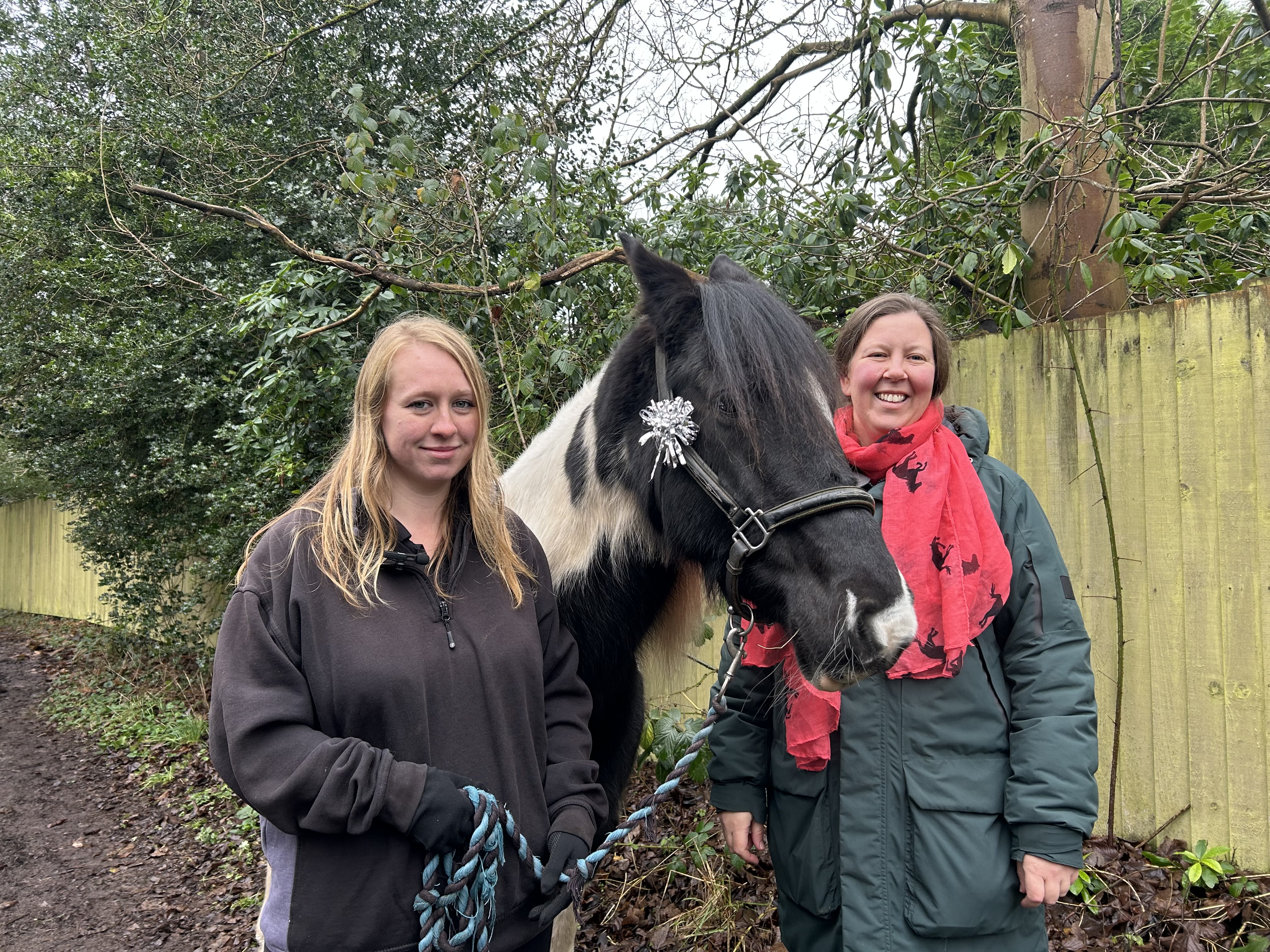How horses are helping autistic children
More people with autism are turning to equine facilitated learning. And, as Alanah Hammond discovers, the animals are making a real difference...
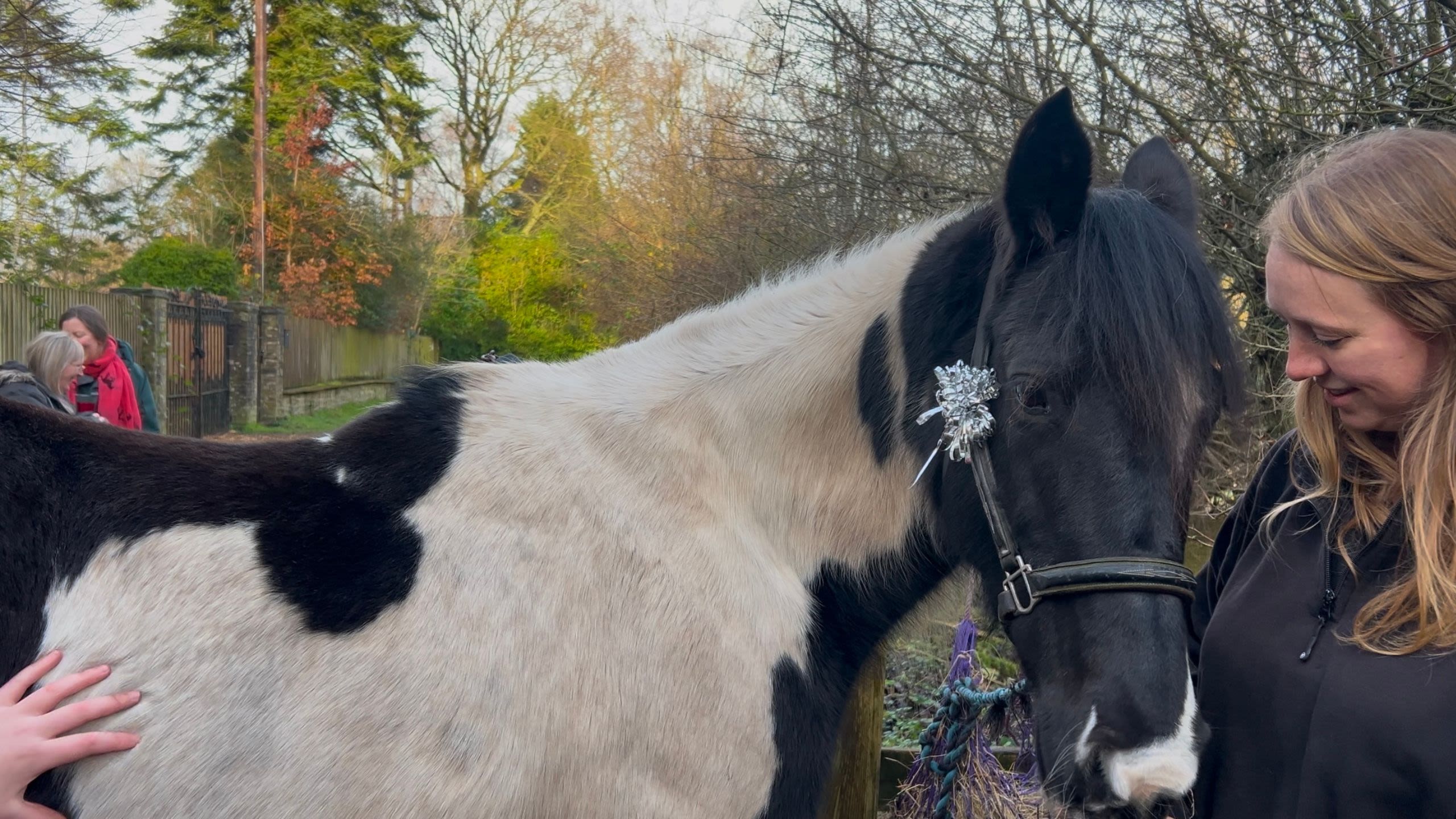
Minnie is patient, friendly and a good listener.
Minnie works well with children - particularly those with special educational needs - and is a great teacher.
Minnie is a 14.2 hand pony.
Equine-facilitated learning offers people the opportunity to build a relationship with a pony or horse – just like Minnie – to help improve confidence and self-esteem.
Ez Thompson, 17, is autistic and has been visiting Minnie every week since Easter as part of their alternative education provision.
Their mum, Sarah Kelso-Thompson, 44, has noticed a huge confidence boost in Ez.
“Coming regularly and forming a bond with the ponies has been really important for building self-esteem,” the full-time carer said.
“Learning techniques to help with self-regulation has helped Ez be a calmer and happier individual.”
In 2019, Sarah Birrane set up Empowering Equine to provide equine facilitated learning to children in Cheshire and Greater Manchester.
“We use interactions and exercises with horses to help kids and young people develop emotional skills and communication skills, improving mental health and wellbeing,” she said.
Sarah gets children and young people to work with her ponies Minnie, Toby, Peaches and Fudge outside the classroom.
She currently works with 14 children on a one-to-one basis but hopes to expand her provision with another site in the future.
Some activities in equine facilitated learning include walking, feeding and brushing the horses.
Crucially, all interactions with the ponies use positive reinforcement and force-free methods.
Minnie (Images: Alanah Hammond)
Minnie (Images: Alanah Hammond)
Ez's mum, Sarah Kelso-Thompson, with Minnie
Ez's mum, Sarah Kelso-Thompson, with Minnie
Sarah Birrane, the founder of Empowering Equine, with Minnie
Sarah Birrane, the founder of Empowering Equine, with Minnie
What is equine faciliated learning?
Why horses?
Emma Hammonds, a consultant educational and child psychologist based in Cheshire, says the animals are very therapeutic.
“Ponies and horses are sentient beings and creatures. They're very emotionally sensitive animals,” she said.
“They help develop children's communication skills and gentle assertiveness – this is particularly important for children with mental health or neurodevelopmental difficulties.
“I'm a big promoter of equine facilitated learning.”
And she's not the only one.
As the demand for Educational Health Care Plans (EHCPs) rise, so does the need for more alternative education provisions - such as equine facilitated learning.
Empowering Equine is one example of an alternative education provider in Greater Manchester and Cheshire.
Ez was able to get funding by their local authority to visit Sarah and Minnie every week as part of their EHCP.
Ez and Sarah grooming Minnie
Ez and Sarah grooming Minnie
Ez with Minnie
Ez with Minnie
An EHCP is a legal document for children or young people with special educational needs and disabilities (SEND).
It details any academic, health and social care requirements as well as the support needed to achieve these outcomes.
The number of children and young people with EHCPs in England increased to 576,000, in January 2024, up by 11.4% from 2023, according to the latest data from GOV.UK.
In fact, the number of EHCPs have risen each year since their introduction in 2014.
Emma Hammonds, also an EHCP consultant, has noticed the rise in requests.
“I've been doing EHCPs for a long time - writing the legal documents for them - and there's been a huge increase in diagnosis of children with autism, which is good, and we're seeing more need for alternative education provision,” she said.
“There's no specification for equine assisted learning in these plans but I specify it and suggest it to a lot of families.
“We're actually seeing more alternative education provided via forest schools.”
Emma explained that forest school activities include learning outdoors, visiting farms and meeting animals that way.
But what gives horse therapy an edge?
“Equine facilitated learning is all about promoting interaction and developing a relationship,” Emma said.
“It's that aspect of social communication and interaction which is missing from other alternative education provisions like forests school,” she added.
As someone with autism herself, Sarah - who founded Empowering Equine six years ago - listed five reasons why ponies like Minnie work well with young people who have social, emotional and mental health (SEMH) needs.
1. Clear communication
“Horses communicate clearly. Once you understand their body language, they can't mask things,” Sarah said.
“This ability is an absolute blessing for the kids that struggle when people aren't communicating clearly.
“Our language has a lot of hidden meanings, and we can rely on body language to convey meaning which can be hard to understand - you don't have any of that with a horse.”
2. Non-judgemental
“Horses respond to how you're behaving with them at the time - they don't hold grudges, and they don't judge your previous behaviour.
“They will treat you how you treat them, and I think that's a real blessing for a lot of the kids that maybe don't always get that opportunity,” she said.
3. Confidence building
“There’s a real confidence boost for the kids by having a 500-kilo animal running around after them, without a lead rope,” the Empowering Equine founder said.
“The kids teach the ponies little tricks and can say they’ve managed to get a horse, that doesn't speak their language, to bow or stretch for them.”
4. Managing emotions
“If you're struggling with frustration or your energy is too high, for example, the horse will respond to that - they may not move or do what you wanted them to do,” she said.
“This gives the kids a real motivation to recognise that their energy is really high and assess how to manage their emotions and lower their energy to work with the horse.”
5. Building relationships
“I find a lot of kids can build trust with the horses and then can build trust in me more easily. Over time, the kids build a great relationship with the ponies,” Sarah explained.
Ez has developed a special connection with Minnie after visiting her every Monday since Easter.
A typical session includes Ez grooming and walking Minnie, with the lead rope.
“My favourite thing to do with Minnie is take her on walks,” they said.
“I don't like sitting still, so it's nice to be moving and outside. It's really relaxing as you're in control, but Minnie can also do her own thing.
“Minnie is really patient and I just feel safe with her.”
“I just love Minnie - she's my favourite.”
And then Ez handed Minnie's reins back to Sarah - until next Monday.
Minnie in her Cheshire stomping ground
Minnie in her Cheshire stomping ground
Ez, Minnie and Sarah
Ez, Minnie and Sarah
Ez grooming Minnie
Ez grooming Minnie
Minnie with founder Sarah and Ez's mum
Minnie with founder Sarah and Ez's mum


